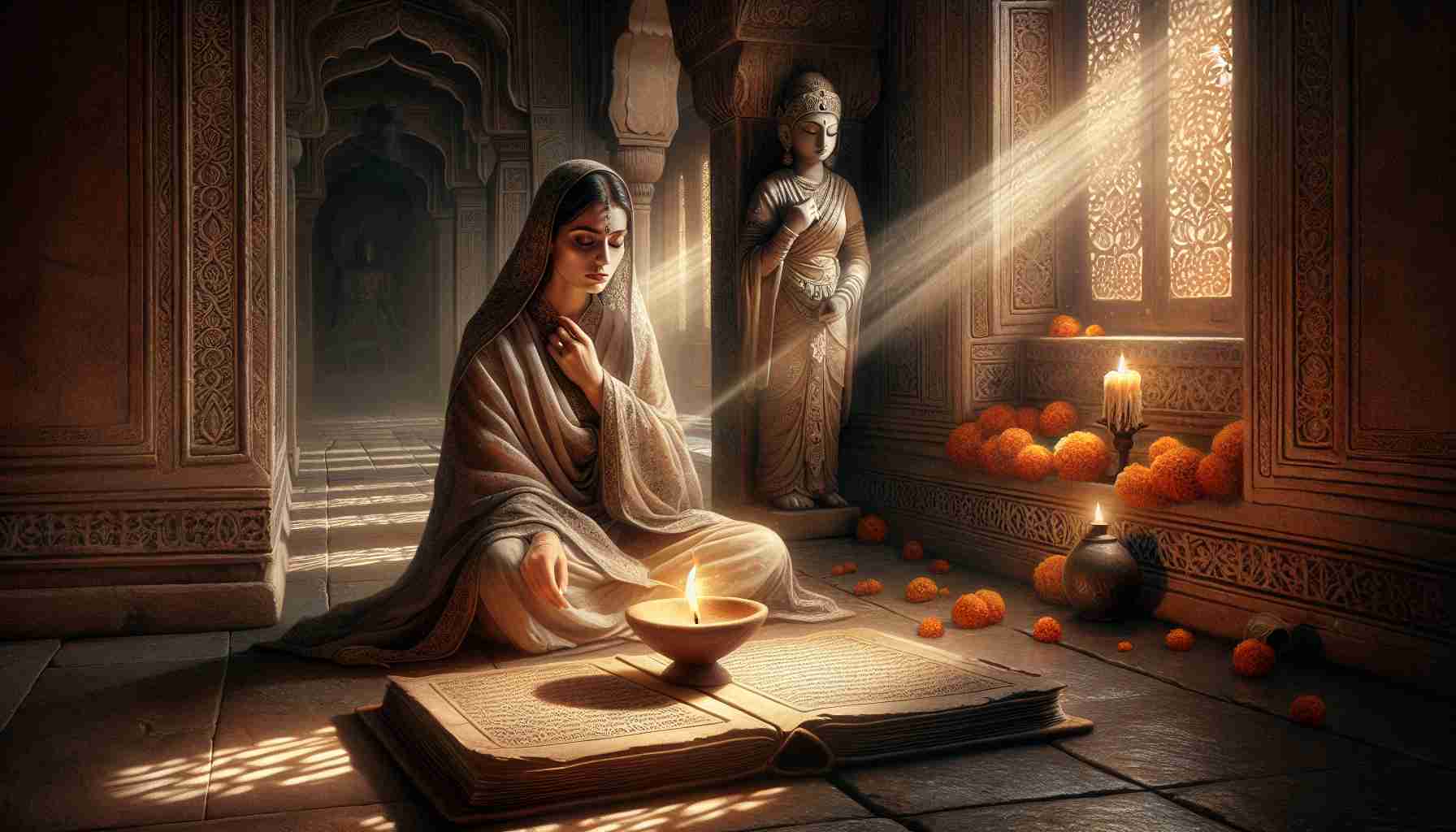

I was born into a family of doctors. My grandfather stitched wounds with calm hands during war. My father diagnosed illness by listening longer than any machine could. And I—I managed charts.
I am Priya Sharma, 36 years old, and until last year, I was a senior hospital administrator at one of Delhi's busiest clinics. To them, I was brilliant. Efficient. Tireless. Most days, I was also empty.
The expectations grew silently—like fog, until I couldn’t breathe. One mistake and five eyes watched me. One delay, and ten emails waited. At night, I cried quietly on my kitchen floor, wondering what had happened to the girl who once sang bhajans under her grandmother's neem tree.
One Sunday, I visited the small temple near my childhood house. It still smelled of marigolds and ghee. I sat quietly by the statue of Lord Vishnu—our preserver, the one said to restore cosmic order. I didn’t ask for anything. I just sat.
A young girl came beside me and dropped a clay diya—her hands clumsy, her joy not. “It’s crooked,” she laughed, “but it still lights.”
That was it. A crooked diya that still lights.
Suddenly, I remembered a verse from the Bhagavad Gita: “One’s own dharma, though imperfect, is better than another’s dharma well performed.” (Gita 3.35) My breath caught. Whose dharma had I been living?
I was trying to match the pace of everyone else's race—but I had been designed for peace, for care, for quiet dedication. Not perfection. Not applause.
The Manusmriti says, “Dharmasya tattvam nihitam guhayam”—“The essence of dharma lies hidden in the heart.” It does not scream. It waits.
So, I began to listen. I took fewer meetings. Permitted myself to let others lead. I returned to singing in the mornings, just one hymn a day. I didn’t quit my job—I simplified it.
I began offering tea to the security guard instead of rushing past. I carried warm food to the cleaning staff during night shifts. I remembered a lesson from the Mahabharata, when Bhishma tells Yudhishthira that simple acts done with pure intent align more with dharma than grand sacrifices done for show.
One evening, a junior doctor told me, “You’ve changed, Priya-ji. We feel calm when you enter.” I smiled and thought of that crooked diya again.
The Upanishads remind us: “As is the desire, so is the will. As is the will, so is the deed.” Profound change doesn’t thunder—it hums. Like a string plucked just right.
Today, I rise early and walk barefoot down the temple path. There, I place one diya—still a bit crooked—but now burning steady.
I’m not chasing titles anymore. I’m walking my dharma—quiet, whole, and simple.
And finally, I can breathe.
I was born into a family of doctors. My grandfather stitched wounds with calm hands during war. My father diagnosed illness by listening longer than any machine could. And I—I managed charts.
I am Priya Sharma, 36 years old, and until last year, I was a senior hospital administrator at one of Delhi's busiest clinics. To them, I was brilliant. Efficient. Tireless. Most days, I was also empty.
The expectations grew silently—like fog, until I couldn’t breathe. One mistake and five eyes watched me. One delay, and ten emails waited. At night, I cried quietly on my kitchen floor, wondering what had happened to the girl who once sang bhajans under her grandmother's neem tree.
One Sunday, I visited the small temple near my childhood house. It still smelled of marigolds and ghee. I sat quietly by the statue of Lord Vishnu—our preserver, the one said to restore cosmic order. I didn’t ask for anything. I just sat.
A young girl came beside me and dropped a clay diya—her hands clumsy, her joy not. “It’s crooked,” she laughed, “but it still lights.”
That was it. A crooked diya that still lights.
Suddenly, I remembered a verse from the Bhagavad Gita: “One’s own dharma, though imperfect, is better than another’s dharma well performed.” (Gita 3.35) My breath caught. Whose dharma had I been living?
I was trying to match the pace of everyone else's race—but I had been designed for peace, for care, for quiet dedication. Not perfection. Not applause.
The Manusmriti says, “Dharmasya tattvam nihitam guhayam”—“The essence of dharma lies hidden in the heart.” It does not scream. It waits.
So, I began to listen. I took fewer meetings. Permitted myself to let others lead. I returned to singing in the mornings, just one hymn a day. I didn’t quit my job—I simplified it.
I began offering tea to the security guard instead of rushing past. I carried warm food to the cleaning staff during night shifts. I remembered a lesson from the Mahabharata, when Bhishma tells Yudhishthira that simple acts done with pure intent align more with dharma than grand sacrifices done for show.
One evening, a junior doctor told me, “You’ve changed, Priya-ji. We feel calm when you enter.” I smiled and thought of that crooked diya again.
The Upanishads remind us: “As is the desire, so is the will. As is the will, so is the deed.” Profound change doesn’t thunder—it hums. Like a string plucked just right.
Today, I rise early and walk barefoot down the temple path. There, I place one diya—still a bit crooked—but now burning steady.
I’m not chasing titles anymore. I’m walking my dharma—quiet, whole, and simple.
And finally, I can breathe.